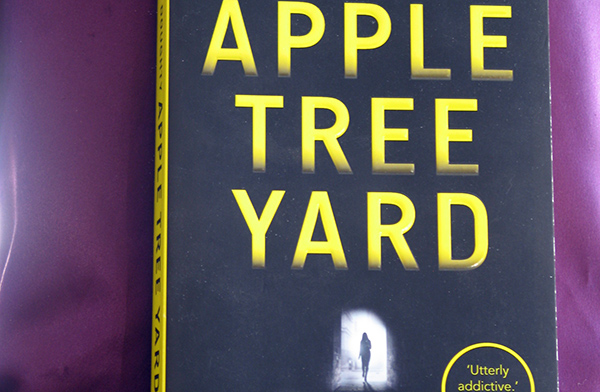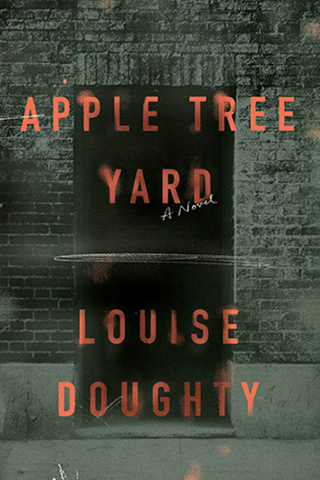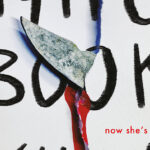Home »

Not an easy novel but interesting
Book Review
By Derryll White
Doughty, Louise (2013). Apple Tree Yard.
“The trouble with stories is, they are addictive.”
This is an English novel. Right away Doughty strikes me as a competent narrative writer – clear lines, good grammatical structure, concise description. What bothers me is the ease with which the central character manipulates her universe. Forty pages in and what I know is that she is an academic researcher with a PhD., married, and capable of having public sex with an unknown man on first meeting him. Damn, I have never met anyone like this in real life.
 Finally, on page 116, the reader learns her name is Yvonne Carmichael. The whole of her life is a little abstract – one of Britain’s top academic scientific researchers, she lives removed from the real world. Sex appears to be a spontaneous act of the moment, devoid of life consequences. At least, that is what it appears to be, much in the same way that academic life is presumed to be devoid of real consequences, enacted in an ivory tower of privilege.
Finally, on page 116, the reader learns her name is Yvonne Carmichael. The whole of her life is a little abstract – one of Britain’s top academic scientific researchers, she lives removed from the real world. Sex appears to be a spontaneous act of the moment, devoid of life consequences. At least, that is what it appears to be, much in the same way that academic life is presumed to be devoid of real consequences, enacted in an ivory tower of privilege.
About half way in things begin to clear. The title comes from one of the places Yvonne had outdoor sex, just removed from Piccadilly with thousands of people rushing by. Her husband has had an affair and they have both come to realize their son is autistic. There are pressures.
This book is a process, a journey through a woman’s mind. It does not place men and the legal system in a positive light. It is, however, a process that many of us, women and men, go through – a journey from love, to obsession, its betrayal and finally to sad action.
More particularly, the story centres on rape, on what the multi-faceted outcomes of such an invasive act can be. Yvonne questions all that she previously believed herself to be. She becomes afraid not of the dark and mysterious stranger, but of the men she knows.
The first piece of what I might classify as “brilliance” occurs two-thirds of the way through ‘Apple Tree Yard’ when Yvonne’s husband uses science to possibly explain her actions. It is shocking, dramatic and simple brilliant because it uses shock and science to explain a scientist’s behaviour. I loved it.
I have to say, there are assumptions made in this book that simply puzzle me. Several times the author suggests men can simply be understood as beasts always driven by base instincts. (I must admit I do know some women who would subscribe to this analysis.) But those same beasts are the fulcrum of action for much that her heroine, Yvonne Carmichael, does. Her actions move between husband and lover. Impetuous, frivolous, Yvonne puts her scientific mind aside and responds to her own base instincts. Why do men shoulder the load here?
Louise Doughty is excellent in building tension within the novel, taking Yvonne Carmichael through her separate lives and then caving the world in upon her. She dwells upon the consequences of her separate actions, her “one fuck in a doorway.” And so it is, I suppose, for all of us – our world can be dissembled by the deconstruction of events focused on the one improbable action each of us might have taken.
In the end Doughty supplies her reader with a detailed, intriguing narrative of how a life can transform itself from humdrum to mysteriously exciting, and then confront the consequences. This novel was not easy. It took a lot of work to read it and stay with it, but ultimately it was interesting.
****
Excerpts from the novel:
MEN – “Men can achieve a persistent vegetative state during the night,” Susannah once said to me. “It’s a well-known medical condition.”
SEX – All my life sex has been the start of something. Animals don’t have casual sex because they understand only the biological imperative – although arguably, this makes all their sex casual, if you’re going to be anthropomorphic about it. The human desire for casual sex is an interesting experiment in the collision between gratification and genetic self-interest.
LOVE – “The thing is,” Jas continues, “what this particular experiment, the one I have never forgotten because it really did quite upset me, what it demonstrated, is that even the most altruistic or self-sacrificing love has its limits. It implies that there comes a point where everyone puts themselves first.”
DEATH – I am ceasing to see Craddock as a person: he is an exhibit. I don’t think this is just because of my hatred of him: it is to do with the reductive process his life and death have undergone. This is what happens when we are dead. We become a series of facts.
STORY – And I listen to this story. And it comes to me that all you need for a story is a series of facts that can be strung together. A spider sometimes strings a thread from a bush to a fence post several feet away, quite implausibly it often seems, but it’s still a web.
 – Derryll White once wrote books but now chooses to read and write about them. When not reading he writes history for the web at www.basininstitute.org.
– Derryll White once wrote books but now chooses to read and write about them. When not reading he writes history for the web at www.basininstitute.org.







